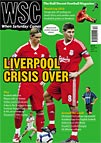 The most famous export of Ecuador's Chota Valley is footballers, as Henry Mance discovered on a visit to the region
The most famous export of Ecuador's Chota Valley is footballers, as Henry Mance discovered on a visit to the region
One day, when football wastes as much of academics’ time as it already does of everyone else’s, some PhD student will spend three years working out which area in the world has produced the most professional players per capita. And he or she will eventually conclude what Ecuadorians already know: that the winner is the Chota Valley, hands down.
About 14 million people live in Ecuador. Some 25,000 of them – 0.2 per cent – live in the Chota Valley, a blip in the Andes between Quito and the Colombian border. And yet the valley provided seven of the 23 members of the 2002 World Cup squad, the nation’s first appearance in the finals.
Among them were Agustín Delgado, Ecuador’s leading international goalscorer, Uli-ses de la Cruz, once of Hibs and Aston Villa, and PSV Eindhoven’s Edison Méndez. In July 2008 when Liga de Quito beat Flamengo on penalties in a packed Maracaná, thereby becoming the first Ecuadorian club to win the Copa Libertadores, they did so with four Chota players. Joffre Guerrón, a Chota resident whose brother went to the 2002 World Cup, scored Liga’s final spotkick.
All these players happen to be black, like most people in the region, but only one in 50 of the million or so Afro-Ecuadorians is from Chota. Some commentators have nonetheless delved into history to argue that the slave ancestors of the current generations came from the Congo basin and had a particularly strong physique. The other, far more credible, explanation is that poverty makes good footballers.
Kids in Chota have little else to do but play football and no doubt the dusty pitches and deflated balls help refine the skills and drive of the very best. “[The conditions] made it more difficult to play football, but I think ultimately they’ve been beneficial, because coming from this place with so many problems an ambition is born. It forms a need to achieve things so that we gain recognition and so that we too might have a little bit of space in this country,” says De la Cruz, 35, who returned to the Ecuadorian league this year.
Locals are adamant that Chota’s success is not just one outstanding generation. The region would have been famous earlier, they say, had it not been for racism among the big clubs. But Chota is now well known for its footballers. De la Cruz believes future generations will “have greater ambition to get to the massive international clubs, because the barrier of mediocrity has been broken”.
The top players still come back to visit, if not to live. There was no better excuse than the national election in April: voting is obligatory and most Ecuadorians are still registered to do so in their hometowns. So I saw the footballers hanging about with old friends on the unpaved streets.
Even the elusive “Tin” Delgado made an appearance. The election theoretically meant a drinking ban, but everyone was drinking beer or puntas, a sugar-cane liquor with a subtle taste of cleaning fluid. Not that much cash was flashed, although one footballer hinted at the advantages of his new-found wealth, telling me that he wasn’t going to bother walking 200 metres to the polling booth and would instead pay the fine.
The hope in the region is that these stars will reinvest their earnings there. Delgado set up a football school in 2001 and around 300 children are currently enrolled. Several youngsters have departed for Ecuador’s top clubs, others further afield. But these days Delgado is more interested in his hotel in nearby Ibarra and the school’s expenses have to be prised out of him by his older sister, Diana, who runs it. His only intervention came when he overruled her plan to make the football’s pitch astroturf. “It’s not the same,” he said. Soil actually capable of growing grass has now been brought from elsewhere in the country.
Yet, even in a region as small as Chota, football can only make a limited impact. The lavish houses of pro players stand in contrast to the widespread local poverty. If you don’t make it in the game, then it’s usually back to farming kidney beans and sugar. What’s really helped the region recently has not been the money admirably invested by Delgado and De la Cruz but social spending by the leftist government of Rafael Correa.
As De la Cruz puts it: “What the region needs is to obtain more rights, more respect, greater integration… In football, we’ve taken an important step, but people of colour don’t just have to aim to play football, but rather to find professions. We have to exercise a right as humans to participate as lawyers, engineers, architects and so on.” And PhD students, why not.
From WSC 274 December 2009